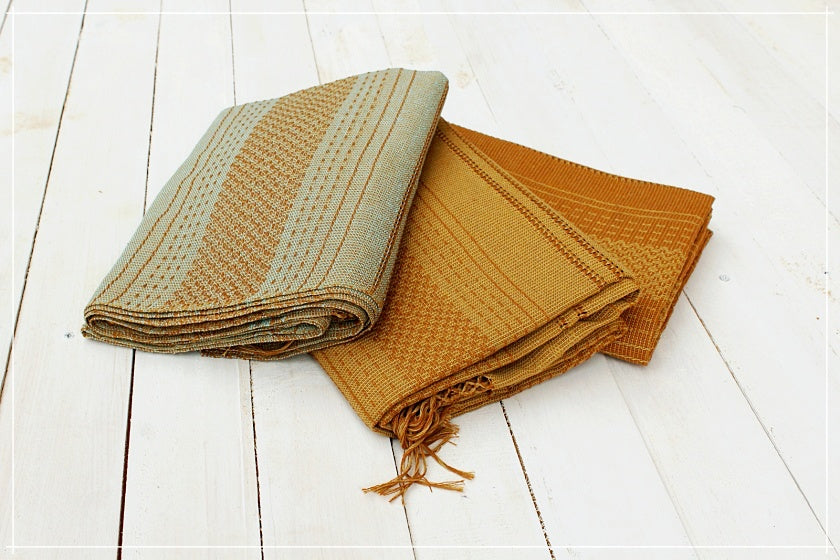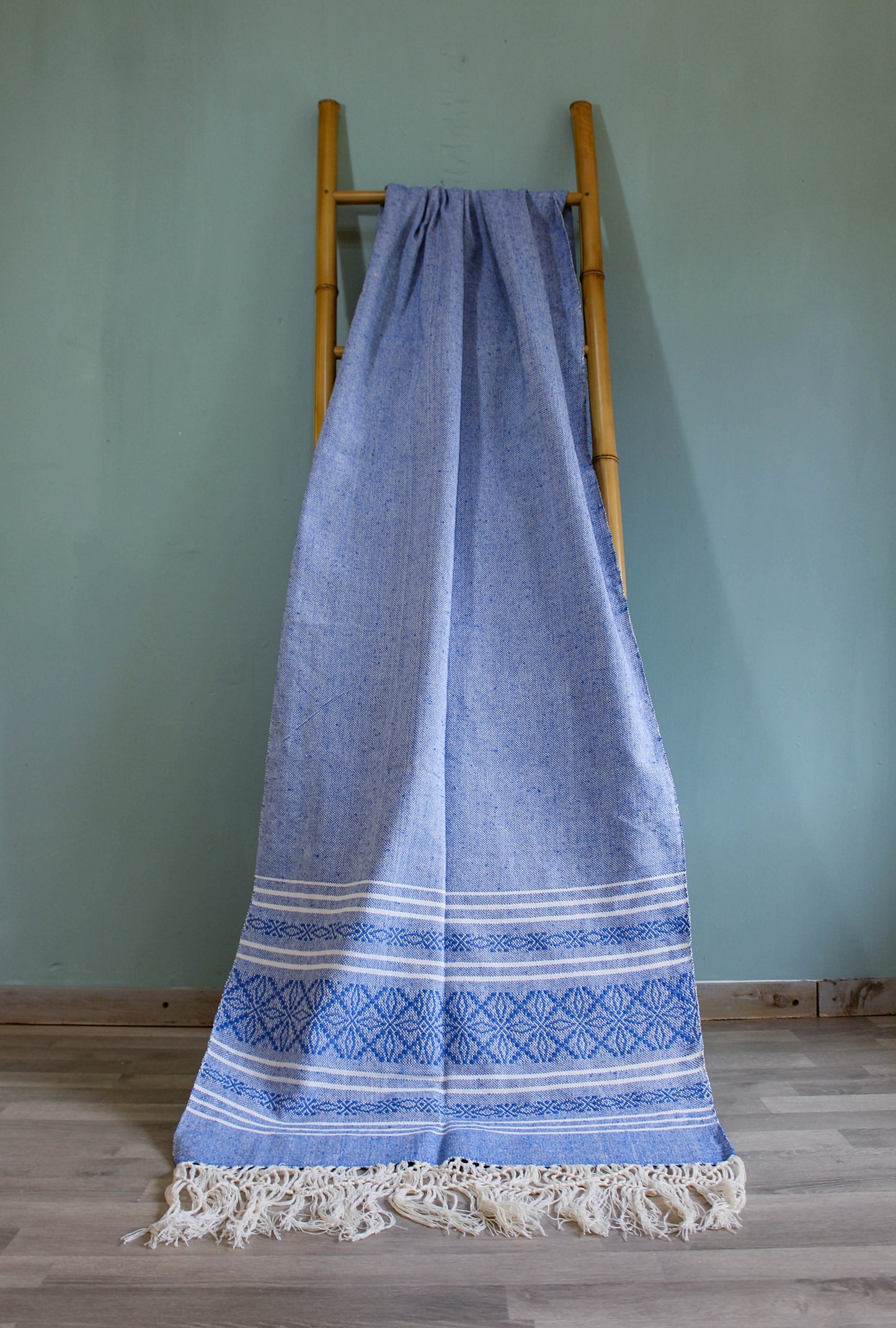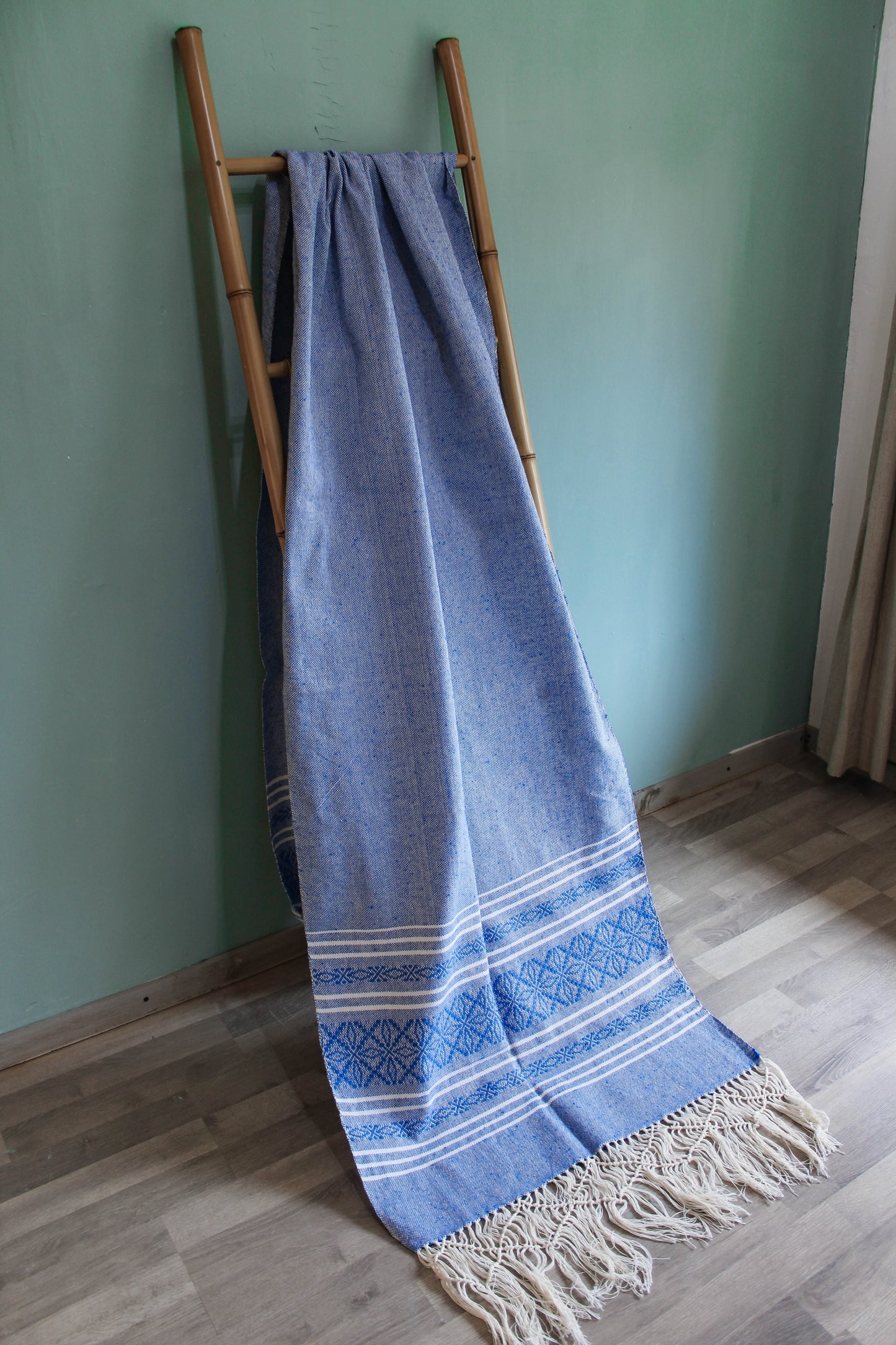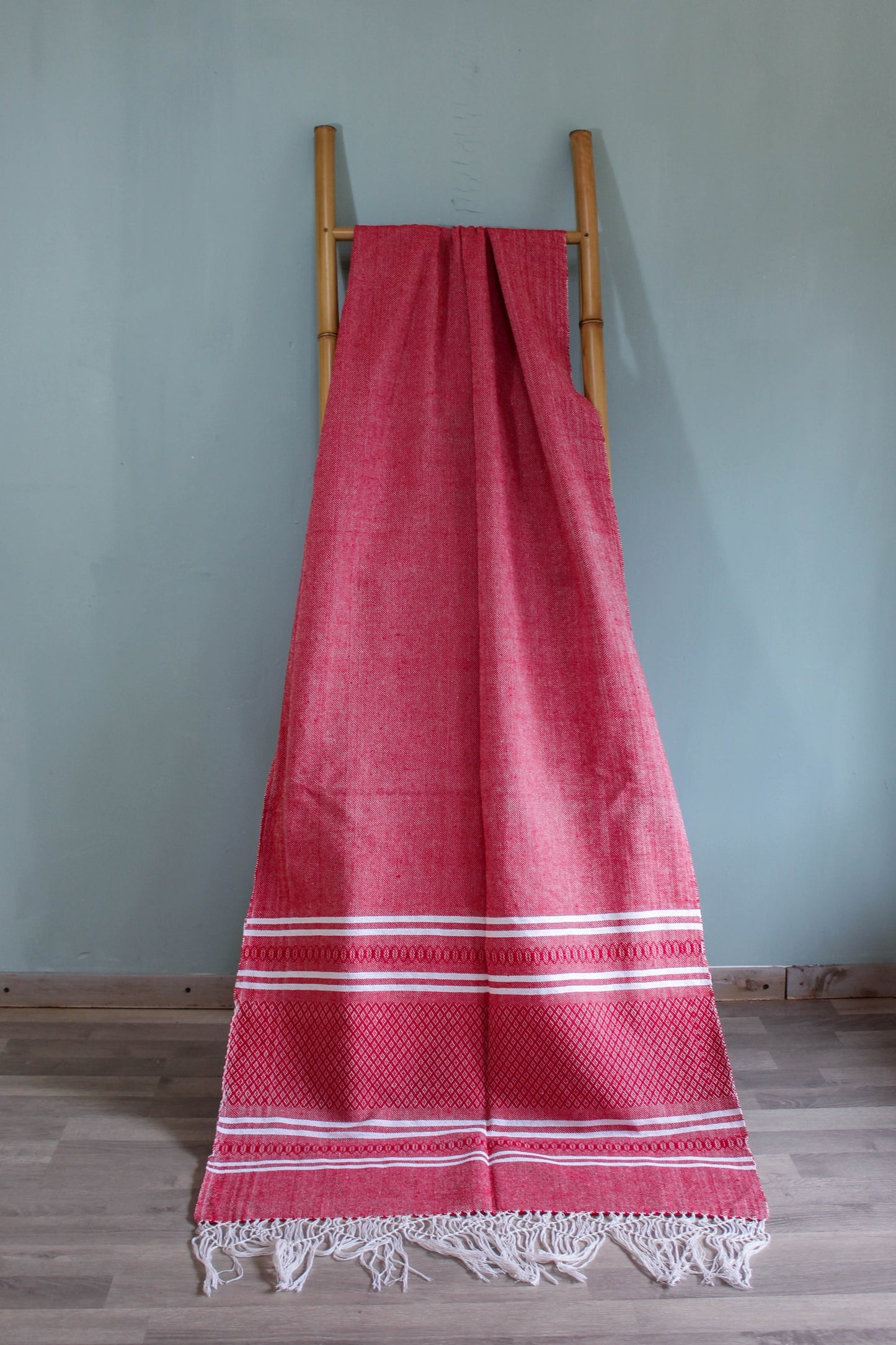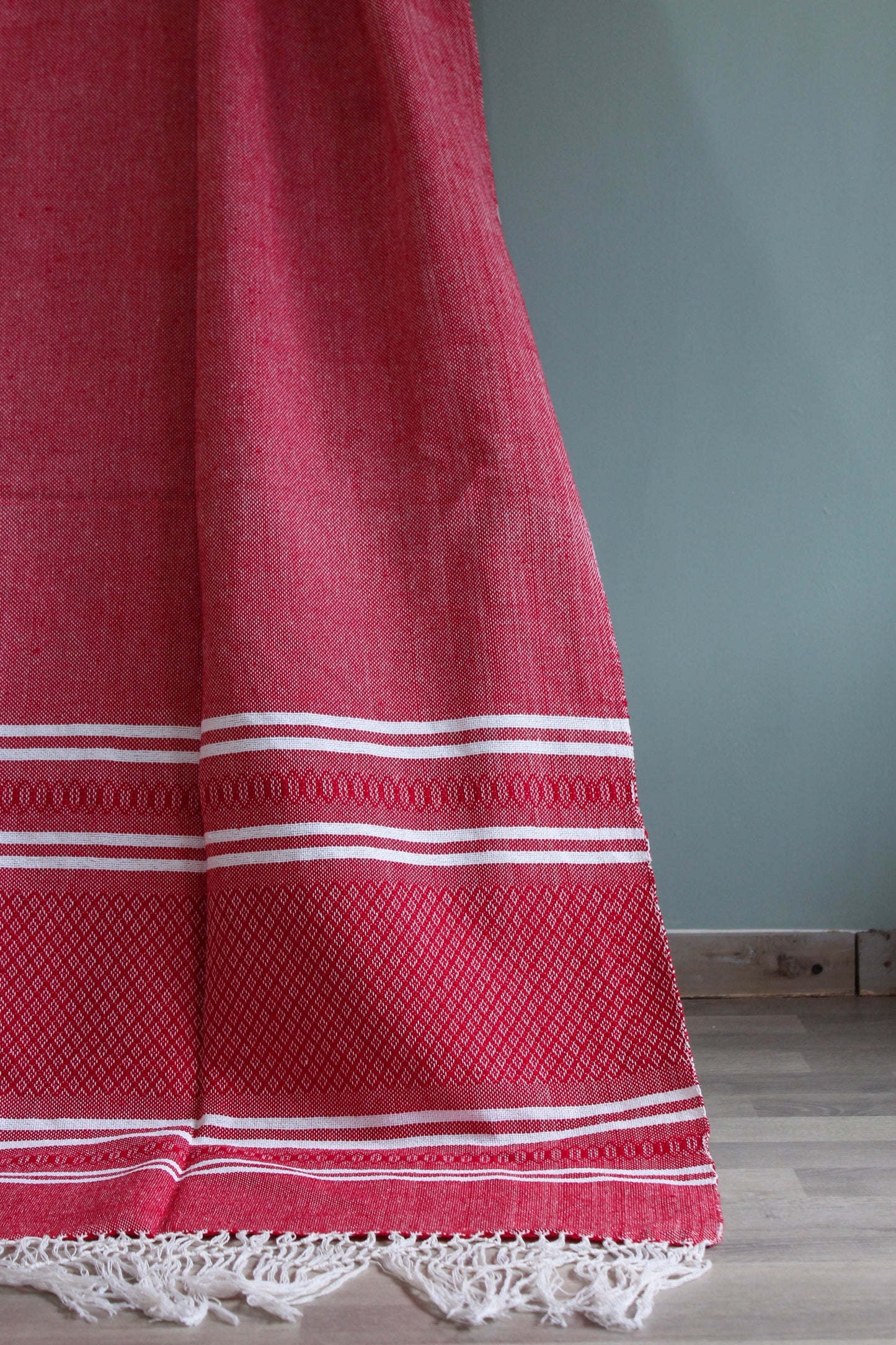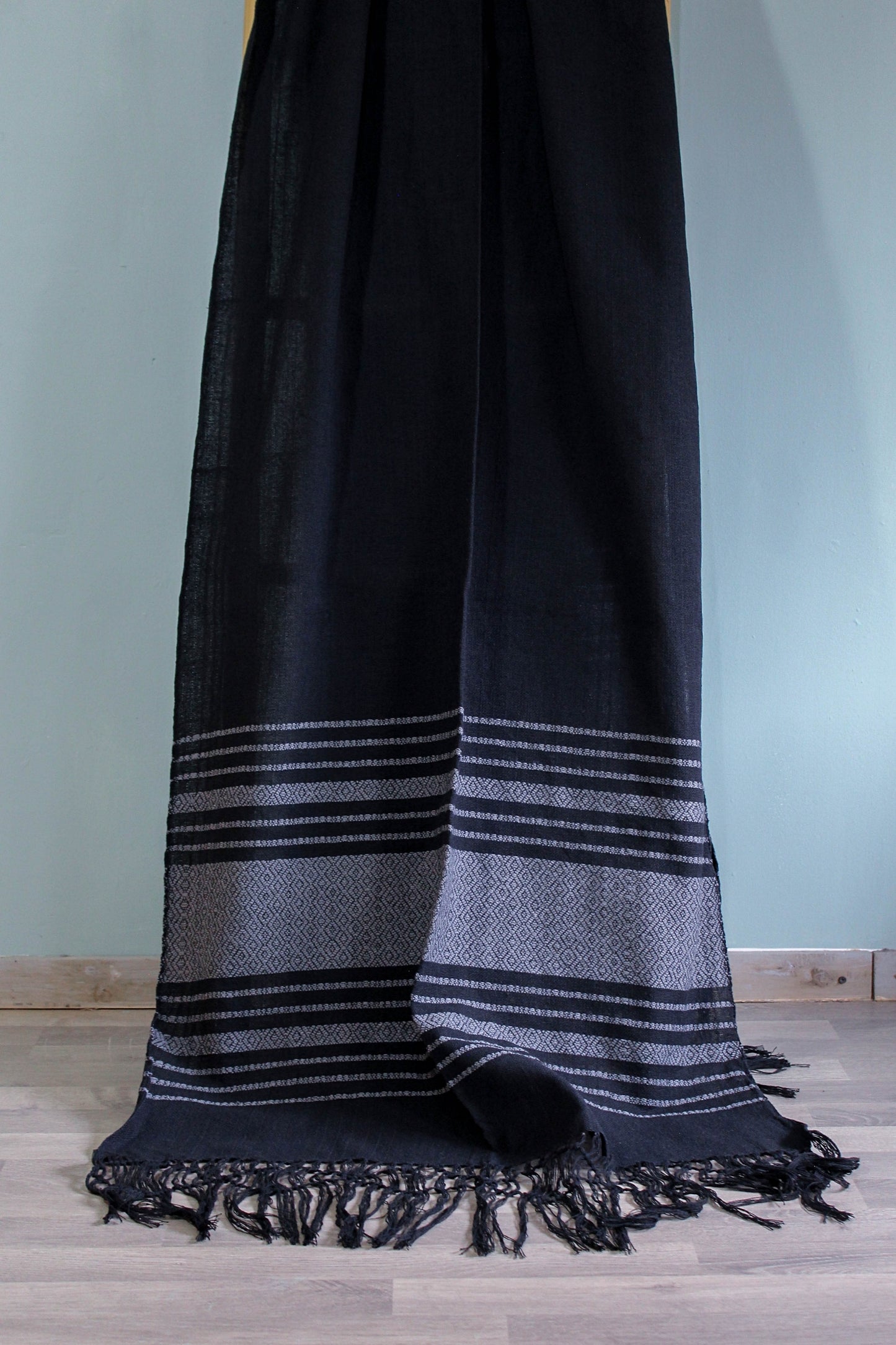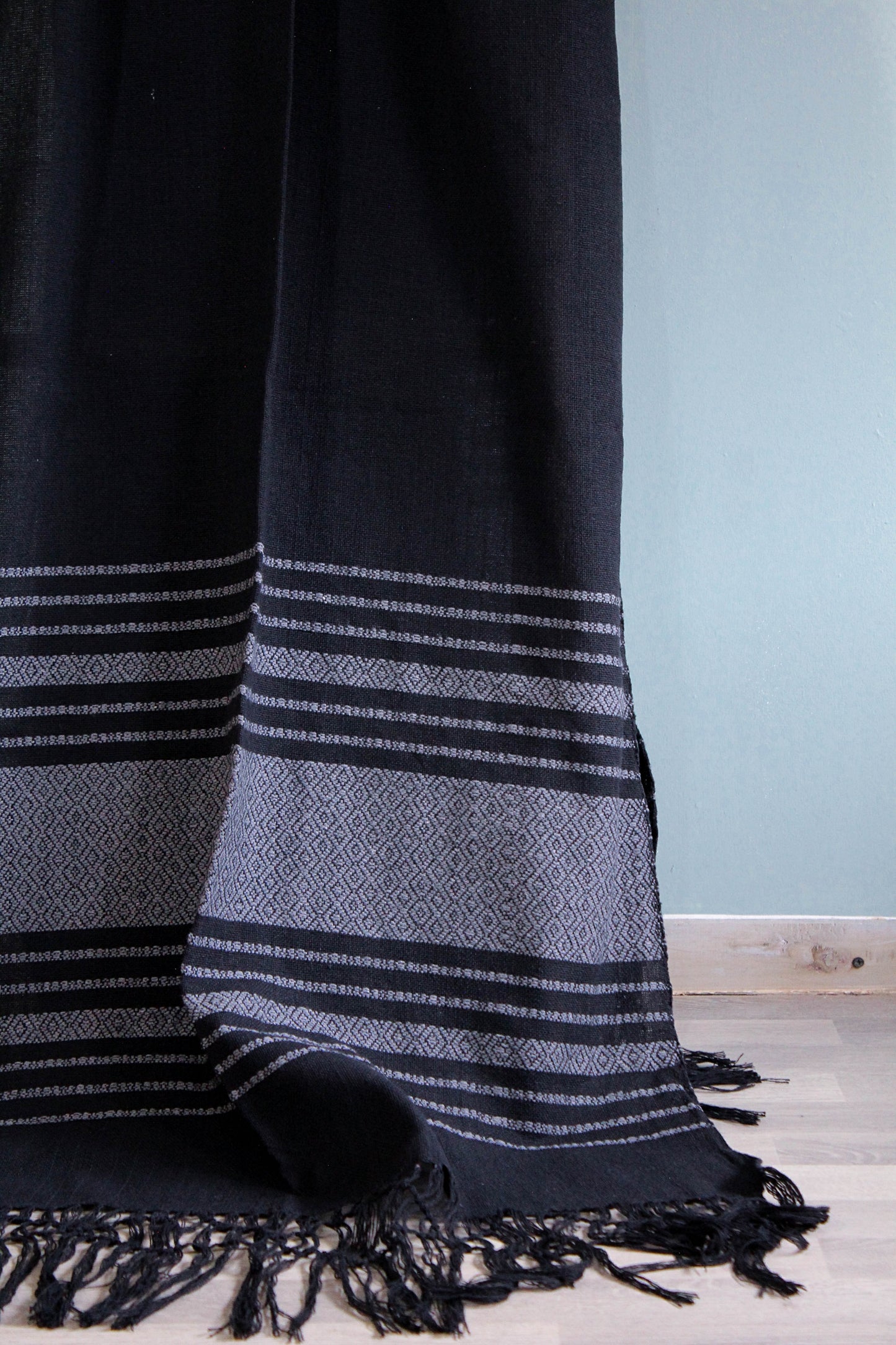
En los últimos años, la industria de la moda ha experimentado un profundo despertar, impulsada por una creciente conciencia del impacto perjudicial de la moda rápida en nuestro medio ambiente y nuestra sociedad. Este despertar ha dado lugar al movimiento Slow Fashion, que se erige como un faro de esperanza y un llamado a alternativas más éticas y sostenibles.
La moda rápida, en esencia, tiene que ver con la velocidad. Se nutre de la rápida producción y consumo de prendas de vestir diseñadas para imitar las últimas tendencias de las pasarelas. Las consecuencias de este ritmo vertiginoso son evidentes en varias facetas de nuestras vidas.
 Nuestro Poncho Natural Nacawe.
Nuestro Poncho Natural Nacawe.
El lado oscuro de la moda rápida
Uno de los problemas más evidentes es el consumo excesivo. La moda rápida fomenta una cultura de compra y descarte constante de prendas, lo que genera una cantidad excesiva de residuos en vertederos e incineradoras. Esta mentalidad desechable no sólo es perjudicial para nuestro medio ambiente, sino que también fomenta una relación superficial y efímera con nuestra ropa.
Además, la dependencia de la industria de la moda de materiales sintéticos y procesos de producción intensivos en productos químicos tiene graves consecuencias para nuestros ecosistemas. La contaminación del agua y los daños a los hábitats naturales se encuentran entre los costos ocultos de la ropa barata y de moda.

En el frente social, la moda rápida a menudo prospera con mano de obra barata en condiciones laborales inseguras, predominantemente en los países en desarrollo. Explota a las comunidades vulnerables y perpetúa un ciclo de pobreza y abuso. Además, la búsqueda incesante de una producción rápida y medidas de reducción de costos descuida la artesanía tradicional, lo que lleva a una disminución de la calidad y el arte de la moda.
Los fundamentos del Slow Fashion
En marcado contraste, el movimiento Slow Fashion representa un cambio de paradigma completo. Aboga por un enfoque más deliberado y consciente de la ropa, que valore la calidad, la longevidad y la producción ética. Las marcas que adoptan los principios de la moda lenta defienden las prácticas de comercio justo y la transparencia en toda la cadena de suministro, garantizando salarios justos y condiciones laborales seguras para todos los involucrados.

Algodón orgánico hilado a mano de Oaxaca
Materiales sostenibles
Además, las marcas de moda lenta priorizan materiales y métodos de producción sostenibles, esforzándose por minimizar su huella ecológica. Este cambio hacia la conciencia ecológica ayuda a reducir la huella de carbono de la industria de la moda al promover un ciclo de producción y consumo más lento. Alienta a los consumidores a apreciar y cuidar su ropa, extendiendo su vida útil y reduciendo el desperdicio.
Estilo económico diferente
La moda lenta también promueve el concepto de economía circular, donde los recursos se conservan y reutilizan. El reciclaje y el reciclaje son parte integral de este modelo y ofrecen formas creativas de reutilizar materiales y mantenerlos en circulación. El próspero mercado de segunda mano, adoptado por los entusiastas de la moda lenta, no sólo reduce el impacto ambiental sino que también contribuye a construir una economía de la moda sostenible y diversa.
Salarios justos
Socialmente, la moda lenta garantiza salarios justos, condiciones de trabajo seguras y el empoderamiento de las comunidades locales. Revitaliza la artesanía tradicional, preservando el patrimonio cultural y fomentando un sentimiento de orgullo entre los artesanos. Además, fomenta las empresas de moda a pequeña escala, promueve el espíritu empresarial y reduce la dependencia de los gigantes corporativos. La colaboración, la empatía y la conexión son las características distintivas del movimiento slow fashion, que fomenta una industria de la moda más compasiva e inclusiva.

Nuestra colección de ropa natural en San José Del Pacifico.
Los beneficios para el consumidor
Desde una perspectiva personal, la moda lenta ofrece numerosos beneficios. Fomenta el consumo consciente, incitando a las personas a considerar el impacto social y ambiental de sus elecciones de moda. Esta atención plena conduce a experiencias de compra más intencionadas y satisfactorias.
La moda lenta también permite a las personas desarrollar un estilo personal único que refleja sus valores y personalidad. Fomenta la autoexpresión y la autenticidad, en marcado contraste con la naturaleza impersonal de la moda producida en masa. Al invertir en prendas atemporales y bien confeccionadas, las personas forman conexiones emocionales más profundas con su ropa, lo que reduce la necesidad de un consumo constante.
Además, la moda lenta promueve el estilo atemporal por encima de las tendencias fugaces. Alienta a las personas a crear guardarropas sustentables y versátiles que trasciendan los caprichos de las temporadas de moda. Este enfoque se alinea con el deseo de longevidad y sostenibilidad en la elección de ropa.
Valores clave de las marcas de moda lenta
Varias marcas de moda con visión de futuro han adoptado plenamente los principios del slow fashion. Estas marcas priorizan la sostenibilidad, la transparencia y las prácticas éticas en todas sus operaciones, sentando ejemplos a seguir por la industria. Exploran activamente materiales y técnicas de producción innovadores, esforzándose por minimizar su impacto ambiental y apoyar la innovación sostenible. Las colaboraciones con organizaciones y partes interesadas con ideas afines aprovechan aún más los esfuerzos colectivos para impulsar cambios significativos.
El papel del consumidor
El papel de los consumidores en el movimiento slow fashion es fundamental. Educarse a sí mismos y a otros sobre sus principios y beneficios es el primer paso para lograr un cambio. Tomar decisiones de compra responsables, como elegir prendas duraderas y bien hechas y apoyar marcas éticas, refuerza el espíritu de la moda lenta. Extender la vida útil de la ropa mediante el cuidado, la reparación y el uso compartido adecuados es una forma práctica de promover la sostenibilidad.

Nuestras amigas vistiendo nuestra colección de ropa, Ruana y chaleco Nacawe Naturals.
Desafíos que enfrenta el movimiento Slow Fashion
Sin embargo, el movimiento de la moda lenta enfrenta desafíos. Una preocupación primordial es aumentar la demanda del mercado de moda sostenible y hacer que las opciones éticas sean accesibles y asequibles para un público más amplio. Para cambiar la mentalidad de los consumidores del atractivo de la moda barata y desechable hacia los valores de la moda lenta se requiere educación y conciencia sobre los costos ocultos de la moda rápida. Lograr una industria de la moda verdaderamente sostenible requiere un cambio sistémico, incluidas reformas políticas, colaboraciones en toda la industria e inversiones en innovación.
El movimiento de la moda lenta no se limita a una sola región o grupo demográfico; es un esfuerzo global. Las iniciativas de base, las campañas locales y los esfuerzos colectivos son cruciales para fomentar una conciencia y una acción generalizadas. Los gobiernos desempeñan un papel fundamental en el apoyo al movimiento de la moda lenta a través de regulaciones, políticas e incentivos que promueven prácticas de moda éticas y sostenibles. Los medios y las personas influyentes poseen el poder de amplificar el mensaje de la moda lenta, inspirando a un público más amplio a adoptar una cultura de la moda más sostenible.
Finalmente…
En resumen, el movimiento de la moda lenta es una respuesta al impacto destructivo de la moda rápida. Defiende prácticas éticas y sostenibles, ofreciendo un enfoque más deliberado y consciente de la ropa. Al promover el consumo consciente, la protección del medio ambiente, prácticas laborales justas y un estilo atemporal, allana el camino para una revolución en la industria de la moda. El movimiento slow fashion es un catalizador del cambio, que visualiza un futuro en el que la ética, la sostenibilidad y la autoexpresión única ocupan un lugar central en el mundo de la moda.

Herminia cosiendo nuestra ropa en San Sebastián Rio Hondo.
Cómo Antama encarna los valores de la moda lenta
Nuestra propuesta en Antama se alinea perfectamente con los principios del movimiento Slow Fashion. Así es como encarnamos estos valores:
Producir en lotes más pequeños:
Estamos orgullosos de producir nuestra ropa en lotes más pequeños, a menudo elaborando solo 5 artículos a la vez. Este enfoque deliberado garantiza que cada pieza reciba la atención que merece, fomentando la calidad y la singularidad.
Crea piezas a mano, desde tejer la tela:
La artesanía es el corazón de nuestro proceso. Desde tejer la tela hasta ensamblar la prenda final, nuestros expertos artesanos dedican su tiempo y experiencia a crear prendas con precisión y cuidado.

Tinte índigo natural
Ropa teñida con tintes naturales y técnicas ancestrales
Además de los principios de la moda Slow, para parte de nuestras líneas de ropa utilizamos tintes naturales y técnicas y producción de color ancestrales.
Asóciese con artesanos, costureros y artesanos locales calificados sin salarios negociados:
Nuestro compromiso con la producción ética se extiende a nuestras asociaciones. Colaboramos con artesanos, costureros y artesanos locales, asegurando que se paguen salarios justos sin negociar salarios. Esta práctica honra sus habilidades y dedicación.
Fuente local en comunidades rurales:
Obtenemos nuestros hilos de tiendas locales. Parte de los tejidos de nuestra ropa son orgánicos y se cultivan, producen y obtienen localmente, particularmente de comunidades rurales. Esto no sólo apoya las economías locales sino que también fomenta un sentido de comunidad y conexión.

La partera zapoteca Briseida brindando una consulta prenatal a una familia en Oaxaca.
Devolver el 10% de las ganancias a proyectos de salud comunitarios y parteras tradicionales:
Creemos en el poder de retribuir. Una parte importante de nuestras ganancias, el 10%, se dedica a proyectos de salud comunitaria y al apoyo de las parteras tradicionales. Este compromiso fortalece el tejido social de las comunidades con las que trabajamos.
Pack en Cajas Recicladas y Materiales Biodegradables:
Nuestro compromiso con la sostenibilidad se extiende a nuestros envases. Utilizamos cajas recicladas y materiales biodegradables, minimizando nuestra huella ambiental y garantizando una eliminación responsable.
Fabricación de productos "internamente" y en aldeas locales:
Fabricamos nuestros productos "internamente" y en colaboración con los pueblos locales. Este enfoque no solo apoya la artesanía local sino que también fortalece nuestros vínculos con las comunidades con las que trabajamos.
Utilizar formas de arte tradicionales en la producción:
Las formas de arte tradicionales están entretejidas en nuestro proceso de producción, celebrando el patrimonio cultural y preservando estas valiosas tradiciones.

La rueda/charkha de Gandhi solía hilar a mano el algodón orgánico aquí en las aldeas locales. Este algodón se utiliza en nuestra colección de ropa natural.
Construir asociaciones duraderas e inclusivas:
Valoramos las asociaciones duraderas, tanto dentro de nuestro equipo como con los artesanos y las comunidades con las que colaboramos. Estas relaciones se basan en la confianza, el respeto y los valores compartidos.
Comparta transparencia sobre los artesanos y los orígenes:
La transparencia es la piedra angular de nuestra práctica. Creemos en compartir las historias y los orígenes de nuestros artesanos, celebrar sus habilidades y arrojar luz sobre el rico tapiz de sus vidas.

Nuestros socios artesanos desde hace mucho tiempo, Doña Socorro y Don Beto de los valles de Oaxaca.
Al adoptar estos principios, Antama no solo contribuye al movimiento Slow Fashion sino que también es un ejemplo brillante de cómo la moda puede ser una fuerza para el bien.
Nuestra dedicación a la calidad, la ética, la sostenibilidad y el empoderamiento de la comunidad sirve como testimonio del poder transformador de la moda lenta en el mundo moderno.
Juntos, estamos creando un futuro más brillante y responsable para la moda.
Lea sobre nuestro proyecto aquí
Consulta nuestra colección de ropa Aquí


